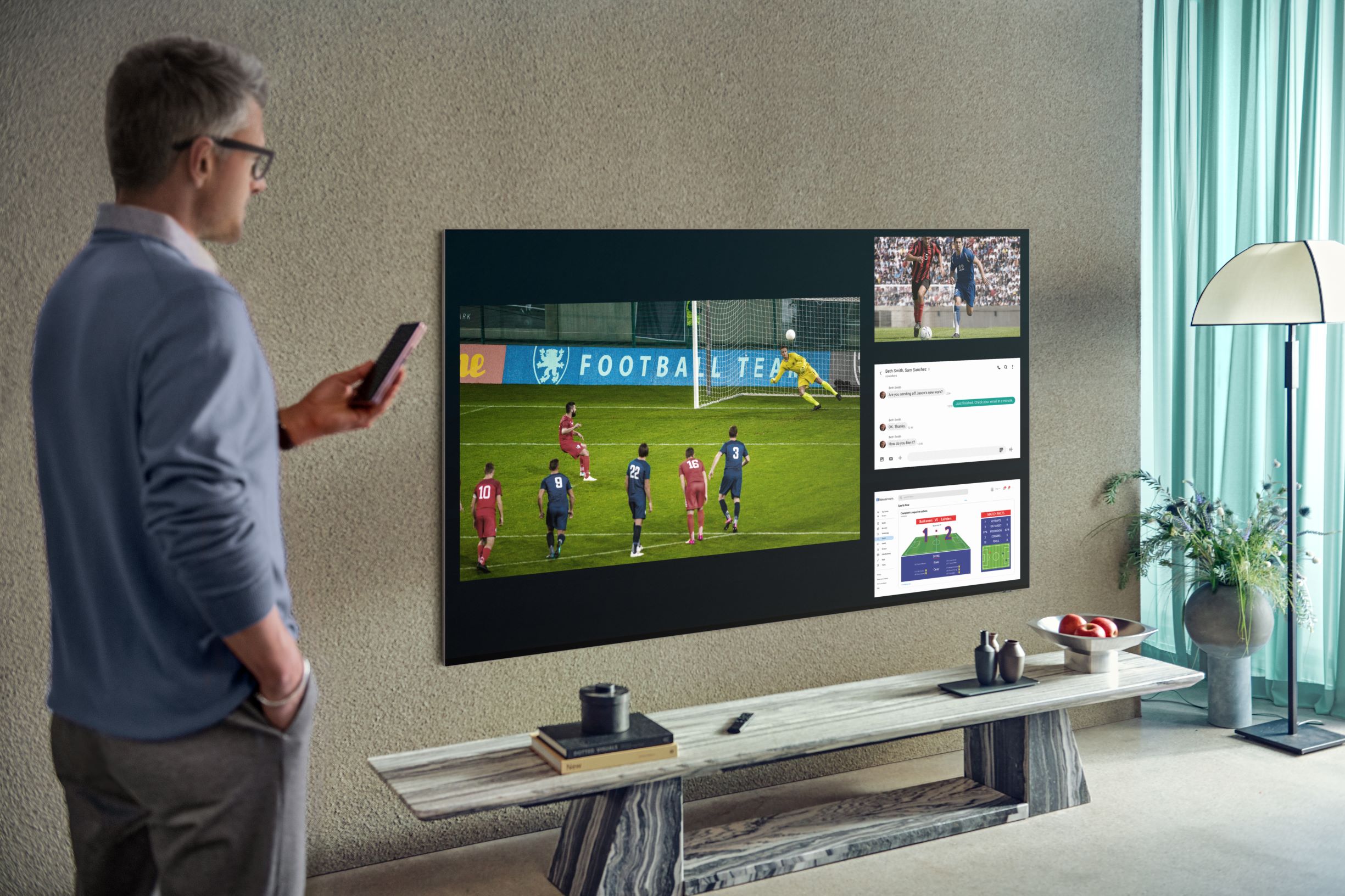DIGITAL LIFE

A team of researchers from the Carlos III University of Madrid (Spain), the University College London (England) and the University of California at Davis (USA) has discovered that smart TVs, or smart TVs, are not as privacy-friendly as previously believed.
The team discovered that internet-connected TVs send viewing data to their own servers, allowing them to create a detailed profile of users. The research revealed that smart TVs take screenshots and audio captures to identify the content being displayed, using a technology known as Automatic Content Recognition (RAC).
The main claim companies make for this data collection is that the information would be used to adapt ads to your consumption habits. However, TVs collect information and periodically send it to their servers even when the TV is used as an external monitor or is connected to a laptop, which puts the security of the data on the user's computers at risk.
"Automatic Content Recognition works as a kind of visual Shazam, capturing images or audio to create a profile of the viewer based on their content consumption habits. In this way, the technology allows manufacturers' platforms to create accurate profiles of their users, just like on the internet," explained Patricia Callejo, one of the authors of the study. "In any case, this tracking, regardless of the mode of use, raises serious privacy concerns, especially when the TV is used only as a monitor." The researchers draw attention to the regularity with which these screenshots and audio are transmitted to the servers of the brands analyzed: Samsung and LG. The data shows that Samsung TVs send this information every minute, while LG devices do so every 15 seconds. "This gives us an idea of the intensity of tracking and shows that smart TV platforms collect large amounts of data about users, regardless of how they consume content - whether through traditional TV or devices connected via HDMI, such as laptops or game consoles," Callejo emphasized.
Default setting...To test the ability of TVs to block tracking by Automatic Content Recognition, the team experimented with different privacy settings on smart TVs. The results showed that, although it is possible to voluntarily block the transmission of this data to servers, the default setting automatically activates the recognition.
"The problem is that not all users are aware of this," said Callejo, who considers this a concern, due to the lack of transparency in the initial settings. "In addition, many users do not know how to change these settings, which results in these devices acting as default mechanisms for tracking their activities."
The researchers recommend that each user carefully review all the privacy settings and terms of use of their specific device, checking which permissions they really want to grant.
According to the team, their research opens up new perspectives for studying monitoring performed by devices connected to the cloud and communicating with each other, more commonly known as the Internet of Things. They also suggest that manufacturers and regulators should urgently discuss the challenges that these new devices will present in the near future.
Center for Digital Democracy (CDD)...In a report by the non-profit organization Center for Digital Democracy (CDD), in the United States, it accuses manufacturers of smart TVs and streaming devices, as well as content platforms, of creating a surveillance system that harms consumers' privacy. The document is 48 pages long and classifies connected televisions as a "privacy nightmare" due to unprecedented tracking techniques aimed at pleasing advertisers. The CDD calls on American consumer protection, privacy protection and telecommunications authorities to adopt new regulations in the sector.
"Digital Trojan horse"...In a statement, Jeffrey Chester, one of the authors of the report, says that connected TVs put consumers and their families at risk by collecting and using data on health, ethnicity and political interests. This data could, in the organization's assessment, be used for surveillance and manipulation. The CDD also considers that the privacy policies offered by manufacturers are misleading, and their promises not to collect or share personal information are irrelevant. “Buying a smart TV is like bringing a digital Trojan horse into your home,” the document states.
For this reason, the organization has requested that the Federal Trade Commission and the Federal Communications Commission of the United States, as well as the California Attorney General's Office and the state's privacy agency, evaluate possible regulations for this market.
The use of AI in smart TVs is a concern...The organization warns about the use of generative artificial intelligence in advertisements broadcast on smart TVs. The report brings together statements and publications made by companies in the sector over the last few years.
For example, some companies mention that it will be possible to change characteristics of advertisements, such as actors' voices and clothing, in addition to generating new details, such as store addresses, special discounts and exclusive coupons.
Another possibility is to generate completely artificial scenes involving products and include them in the middle of films and series, in a dynamic and targeted way, without a clear interruption between the program and the advertisement.
For Chester, director of the CDD, these practices can make it difficult to regulate the sector. It proposes that the use of AI in advertising be prohibited when it involves pharmaceutical products or items aimed at children.
Medicines and political campaigns deserve attention... The organization's report also warns against advertisements for prescription-only medicines, which could be targeted at specific people, based on the information available about them.
Another possibility is the use of this data by political campaigns. Candidates and projects could be presented in a personalized way, even taking advantage of information about the viewer's emotional state.
mundophone

No comments:
Post a Comment